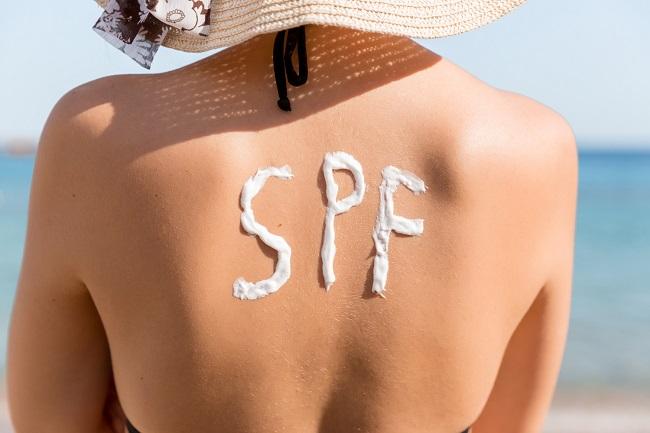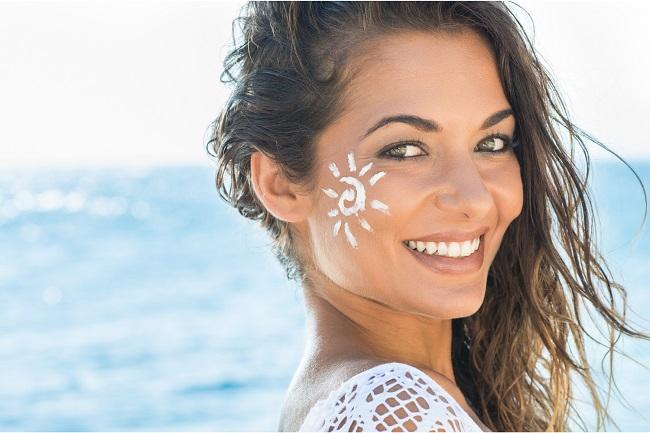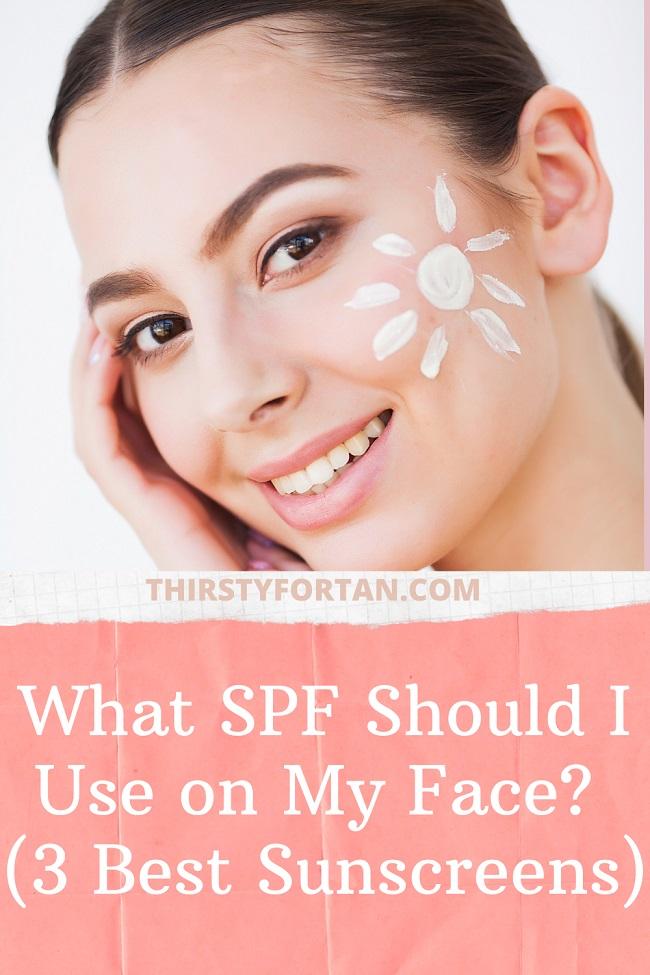If you are starting to get into using sunscreen on a regular basis, you may be wondering where to start and have many questions, like what SPF should I use on my face? Luckily, this article has all the answers you need, so read on to find out.
What is an SPF?
If you are new to the sunscreen and skincare world, or even if you’ve been around for a while, you may not be too sure about some of the skincare jargon which is often thrown around, and sometimes difficult to understand. You may have seen the word SPF on a product’s packaging before, and you may even have a brief knowledge of what it means, but do you know the real science and facts behind it?
Firstly, SPF stands for Sun Protection Factor and it is essentially, just as it sounds, a form of measurement of how much a product protects you from the Sun’s UV rays. Any skincare or cosmetic product can have an SPF, and some face products, such as foundations, often use this as a selling point.
There are two types of UV rays that come from the Sun, known as UVA and UVB, which both cause damage to your skin, but in their own ways. When you are finding out a measure of SPF which a product offers, this is only accounting for the amount of UVB you, and your skin, are protected from, and not a measure of UV rays altogether. Because of this, you should also consider choosing a sunscreen that is labeled as ‘broad-spectrum’ or advertises itself in some genuine way to display that it also protects you from UVA rays.
Also read: What is A Sunscreen Factor? (How To Pick A Sunscreen?)
What SPF should I use on my face?
Now that you know some brief background information about how the whole system of an SPF works to begin with, you can find out about what SPF you should be using on your face. There are a few different conditions that can affect this, and you should account for all of them when making the decision about which level of protection to use.
One small fact which is good for your curiosity about SPF’s is the amount of UVB they filter out. SPF 15, when applied properly and is fully-functioning, is supposed to filter out 93% of UVB rays, while SPF 30 filters out 97% and SPF 50 is 98% – meaning there’s only a 1% difference in the amount of UVB which is filtered out between SPF 30 and SPF 50. Anyway, onto what you should be wearing.
It is important that you apply your sunscreen to your face every day in order to ensure you are benefitting from it fully, even during the winter or when the Sun doesn’t seem as bright. That’s because, while the Sun may not seem as strong on certain days, it’s still present, and so are its UV rays.
During the summer (or on a particularly bright or sunny day), it’s recommended that you wear an SPF 50 on your face, especially if you are planning to spend a lot of time outside. If you aren’t deciding to deliberately spend time outside, or you won’t be exposed to the Sun very much, SPF 30 should be just enough for anyone, as long as you don’t have a specific skincare problem which would mean you’d need the most protection possible.
On the other hand, during the winter (or slightly cloudier, darker days when the sunlight isn’t as intense), there isn’t the same need for such a high protection. If you are staying inside or you won’t be exposed to much sunlight, SPF 15 may even be all you need, but SPF 30 is still the best option in order to stay on the safe side.
Also read: Is Sunscreen Bad for You? (How To Prevent The Danger?)
What SPF should I use on my body?
Because the skin on your body is generally tougher than that on our face, we often treat the two very differently to each other, using different products, and often using ones which can have much harsher on our body than we do on our face.
Despite this, SPF 15 is still the minimum level of protection which is approved for safe use, and the same general ‘rules’ apply as they do for your face. However, in the winter, when the weather is colder, you generally cover up your skin much more, so sunscreen on your face and neck should be just enough. However, in the summer, when you aren’t covering up your body as much, you should be wearing at least SPF 30 on your body.
If you are at the beach, or around the pool, you should be remembering to re-apply your sunscreen regularly throughout the day. In addition to this, it’s also advised that you apply more sunscreen to both your face and body every time you come out of the water after a swim or dip to cool off.
What are the three best sunscreens to use on your face?
1. La Roche-Posay Anthelios Fluid Face Sunscreen SPF 60
If you have ever used any products from La Roche-Posay before, you’ll know how well they cater for all skin types, from oily to sensitive, all at once. With this SPF 60, you can be confident that you are protected more than enough from the harmful UV rays that come from the Sun.
Not to mention, this formula is non-comedogenic, so it won’t clog your pores, and non-greasy so it feels great on your skin. It’s also free from oxybenzone, a potentially harmful UV filter which is commonly found in sunscreens.
2. Australian Gold Botanical SPF 50 Face Sunscreen Twin Pack
As these sunscreens come in a twin pack, they’re more cost effective than just buying each product individually and are both very effective. Both of them are mineral sunscreens, meaning the ingredients they contain are reef-safe and much preferred by many people for a variety of different reasons, too.
One of the sunscreens in this set is a regular lotion, and the other is slightly tinted, somewhat like a tinted moisturiser, to give you a healthy-looking glow whilst you spend your time in the Sun.
3. Sun Bum Original SPF 50 Face Sunscreen
Sun bum is one of the most iconic sunscreen brands and amongst many of the reasons for this is the unbeatable price. As you can clearly see, this is price, $11.99, is extremely reasonable for such a high performing sunscreen, which usually come with a hefty price tag.
The formula is free from any harmful chemicals, including Octinoxate and oxybenzone so you’re benefitting both yourself and your environment. It’s also a broad-spectrum cream and includes moisturising ingredients, while also being fragrance-free.
Final thoughts
In short, you should be using at last SPF 15 on your face during cooler times of the year, in order to protect your skin from any damage, and at least SPF 30 or 50 in the summer months. On your body, sunscreen is only necessary when you aren’t covering up much skin, and the same formula for choosing your SPF applies. Now you know what SPF you should be using on your face, and even some examples of high-quality face sunscreens, you can be confident to go out and face the day!




